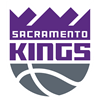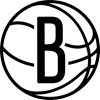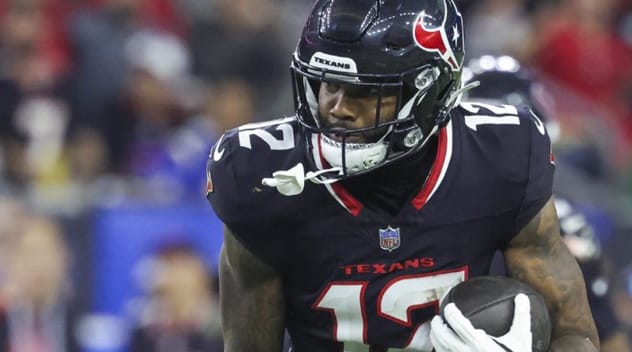This Job Battles article will look in depth at the Chiefs receivers behind Tyreek Hill.
Group One will look at Mecole Hardman, Sammy Watkins, Demarcus Robinson, and Byron Pringle while Group Two will look at undrafted rookies Kalija Lipscomb, Cody White, Andre Baccellia, and Maurice Ffrench.
Chiefs Wide Receivers (Behind Tyreek Hill)
Group One
Mecole Hardman (94.43 BB10, 98.76 NFFC)
Sammy Watkins (139.56 BB10, 141.1 NFFC)
Demarcus Robinson (239.46 BB10, 278.33 NFFC)
Byron Pringle (N/A BB10, 285.48 NFFC)
Mecole Hardman and Sammy Watkins serve different functions and generally aren't fighting over the same snaps. For most of last year Watkins was the main Chiefs slot receiver, while Hardman and Tyreek Hill tended to see the second-most slot snaps, though running different types of routes than Watkins. Even if Watkins and Hardman aren't threats to each other's snap counts, though, they are still competing with each other in the target rotation. If the 2020 offense looks like the one from last year, then the usage tension between Watkins and Hardman should be somewhat predictable. Basically, for Watkins to draw targets in a WR2 volume he'll need to offer greater utility as a mid-range slot receiver than Hardman does as an underneath/downfield outside wideout.
Hardman should develop a more well-rounded skill set with experience, but he'll always project more consistently for targets either underneath or downfield than he will in the intermediate or middle of the field. At 5-10, 187 Hardman doesn't really have the frame density to withstand volume in a high-contact role, whereas at 6-1, 211 Watkins is better suited to cross the middle of the field. This showed up in their respective usages last year – according to PFF, 22 of Watkins' 90 targets (24.4 percent) occurred between 10 and 20 yards downfield, whereas only seven of Hardmans' 41 targets (17.1 percent) landed in that intermediate range. Not just that, but 49 of Watkins' targets (54.4 percent) occurred in the middle of the field, a contrast to Hardman's 16 targets (39 percent).
Since Hardman probably isn't the best candidate for consistent intermediate targets, and since it's all but impossible for Hardman to outrank Hill for deep functions, Hardman carries the highest risk of decoy functions among the Chiefs receivers. The Chiefs correctly prioritize Hill and Travis Kelce in the passing game, and Hardman's credible downfield threat can help clear the coverage a bit. This showed up in the disconnect between his 2019 ADOT (11.3 yards, 56th percentile) and 0.96 air yards per snap average (29th percentile). Still, narrow as it might be, there's a chance for Hardman to increase his usage in a way that doesn't require him to beat Hill or Watkins. Indeed, it would be much easier for Hardman to beat Demarcus Robinson for that usage, as Robinson is likely a sub-replacement level player whose 55 targets and 745 snaps from last year scream for reallocation.
More specifically encouraging for Hardman's prospects is the fact that Robinson's usage from last year really does suit Hardman's abilities. A good chunk of Robinson's targets last year (13, 23.6 percent) occurred at 20 or more yards downfield, and it's safe to declare it in the team's interests to get a lot of those targets redirected toward Hardman. After catching five of his seven deep targets for 234 yards and three touchdowns last year, Hardman made clear his superiority to Robinson, whose 13 deep targets yielded just seven receptions for 219 yards and four touchdowns. Hardman would also be an improvement over Robinson underneath, as Hardman's 22 targets under 10 yards yielded 17 receptions for 196 yards and two touchdowns. On 29 targets in the same range, Robinson could only offer 21 receptions for 172 yards and zero touchdowns.
It's worth noting that Robinson tended to line up outside with Watkins in the slot, meaning Hardman would project as viable for these functions even if Watkins is on the field. If a lesser player like Robinson could earn that usage with Watkins generally present, then for that share of the offense Watkins shouldn't pose much obstacle to Hardman if he were to run in Robinson's former place. If you take Hardman's 2019 numbers and project him to take, say, eight of Robinson's 13 downfield targets and 15 of Robinson's 29 short targets, it could raise Hardman's yardage from 538 to upwards of 850, not to mention the touchdowns entailed. Factor in Watkins' injury history and the fact that Hardman is still improving at just 22 years old, and you can imagine how the upside scenario might occur for him despite the crowded picture in the meantime.
Of course, as much as it's worth considering Hardman's upside in the event that he seizes most of Robinson's 2019 usage, it's also important to remember that Watkins is capable of claiming that same usage. Watkins' slot-heavy role with the Chiefs might be more out of necessity than ideal fit, because he's actually a more proven threat outside and downfield than he is in the slot. The Chiefs used Watkins more as an outside receiver (and Hardman more as a slot receiver) in their final two playoff games, which means it might not be a coincidence that Watkins went off for 12 catches, 212 yards and a touchdown on 16 targets in those two games. Rather than one of Hardman or Watkins emerging to the full extent of their investors' hopes, this could instead be a case where two overqualified candidates take turns disappearing behind Hill and Travis Kelce. Both Hardman and Watkins are ideally selected in best ball formats, and the two are ideally paired in such cases so as to fully capture their combined upside.
However things sort out between Hardman and Watkins, their top backup will likely be Robinson, who should mostly work outside. Robinson's one-year deal is fully guaranteed and he's therefore highly likely to make the roster, indicating that Andy Reid values Robinson as depth. As an ostensibly downfield-oriented wide receiver lacking separation ability, Robinson has sometimes been a drain on the Chiefs passing game. He flashes body control and high-pointing ability at times, but he still drops too many passes for a guy who largely needs to get by with the jumpball. Even on his guaranteed contract, Robinson might be at risk for healthy scratch days if he doesn't hold off Byron Pringle, a drop-prone player but one with much more speed and special teams utility than Robinson. Pringle impressed with six catches for 103 yards and a touchdown on eight targets against the Colts in Week 5 but mostly disappeared after that. As much as Pringle made the most of his opportunities, the fact that he played only 146 snaps to Robinson's 745 seems to imply that Reid doesn't consider Pringle especially close to Robinson in the rotation.
Group 2
Kalija Lipscomb
Cody White
Maurice Ffrench
Andre Baccellia
These four are all undrafted rookies and none of them has much chance of playing as more than the WR5 for the Chiefs this year, if that. What's interesting about the four of them is that they all generally profile as slot prospects for the Chiefs, meaning they're all candidates to serve as the primary backup to Watkins in the slot this year. Watkins is playing on a one-year deal and likely won't be re-signed, so it sure seems like the Chiefs singled out these four to audition in that specific role. Particularly in dynasty formats, you might want to keep an eye on each of them as they compete for the Chiefs' final roster spot or two at receiver. Despite their undrafted pedigree, each has their own considerable selling point to consider, and as many as three could stick with the team including the practice squad.
Kalija Lipscomb is likely the favorite of the four, his $10,000 signing bonus (per OverTheCap.com) pacing the group and his vested guaranteed salary ($100,000) towering over those of the other three. Cody White is a close second behind Lipscomb all the same with a $7,500 signing bonus and $30,000 vested guaranteed salary.
Lipscomb (6-0, 207) was a four-year standout at Vanderbilt and served as their WR1 over the last two years, generally thriving and reliably outplaying the team baseline despite poor quarterback play, especially in 2019. Lipscomb's NFL stock suffered as the Vanderbilt offense imploded last year, but a closer look at his production vindicates Lipscomb – his 47 receptions for 511 yards and three touchdowns on 82 targets (57.3 percent catch rate, 6.2 YPT) were ugly but still above the hideous team baseline of 53.1 percent completed at 5.5 YPA. Lipscomb was especially impressive in his true sophomore and junior seasons, though, again outplaying the baseline in both cases. Although Lipscomb's 40 time (4.57) and vertical (32 inches) were below average, his Vanderbilt production says he has a viable skill set and his 127-inch broad jump was otherwise well above average.
White (6-3, 217) is the biggest of the group as well as the youngest, not set to turn 22 until the end of November. White already was an above-baseline producer as the WR1 at Michigan State, so the age adjustment only adds luster to his skill set projection. As much as White was unimpressive at the combine (4.66 40, 35.5-inch vertical, 120-inch broad jump, 11.71 agility score), his production is good to the point that it makes his workout numbers forgivable. Even as a true freshman White established himself as a standout receiver, catching 35 of 63 targets for 490 yards and four touchdowns (55.6 percent catch rate, 7.8 YPT) as the Spartans completed 58.3 percent of their attempts at 6.6 YPA. In his sophomore season he missed time with a broken hand but otherwise caught 42 of 79 targets for 555 yards and two touchdowns. That's a 53.2 percent catch rate at 7.0 YPT in an offense that completed 52.2 percent of its passes at 5.7 YPA. Finally, in his 2019 junior season, White caught 66 of 106 targets for 922 yards and six touchdowns (62.3 percent catch rate, 8.7 YPT) in an offense that completed 58.2 percent of its passes at just 6.9 YPA. White didn't just outplay the Michigan State baseline in each of his three seasons – he flat out made his teammates look bad. Consider White something like a middle-class man's Kelvin Harmon.
Maurice Ffrench and Andre Baccellia are the two underdogs of the quartet, because neither was invited to the combine and the two received the smallest signing bonuses ($2,500) of the group. Baccellia is a slight favorite relative to French due to a higher vested salary guarantee ($12,500 to $2,000), but that only triggers if a player makes the team.
Baccellia (5-10, 176) is skinny and showed no downfield skill set at Washington (11.1 career YPR), so he profiles worst of the group for outside snaps. That lack of versatility could hurt him, but his abilities as a possession threat from the slot seem promising. Baccellia likely runs a 40-yard dash in the mid-4.4 range, having timed at 4.39 seconds in at least two different years of Washington's spring workouts.
Ffrench (5-10, 194) doesn't have Baccellia's speed but that's offset by the fact that Ffrench has a much heavier frame. The Athletic's Dane Brugler reported a 4.52-second 40 for Ffrench, which isn't bad at all if accurate. After initially beginning his Pittsburgh career at defensive back, by his final two years Ffrench was a workhorse possession wideout for Pittsburgh, generally operating underneath while dealing with poor quarterback accuracy. Importantly, Ffrench outproduced the Pittsburgh baseline in both of his final two years while serving as the team's WR1. In 2018 he caught 54.7 percent of his targets at 8.05 YPT as Pittsburgh completed 57.6 percent of its attempts at 6.3 YPA. In 2019 the Panthers completed 63.1 percent of their attempts at 6.6 YPA in Ffrench's 11 games, yet he produced 96 receptions for 850 yards and four touchdowns on 129 targets (74.4 percent catch rate, 6.6 YPT).



































